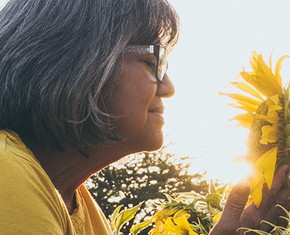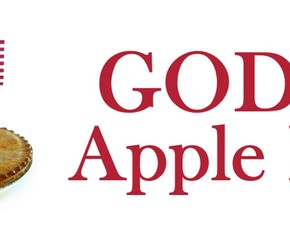The views expressed in our content reflect individual perspectives and do not represent the authoritative views of the Baha'i Faith.
Of all the arts and sciences, set the children to studying those which will result in advantage to man, will ensure his progress and elevate his rank. Thus the noisome odors of lawlessness will be dispelled… all will live cradled, secure and in peace. – Tablets of Baha’u’llah, pp. 168-169.
For years I strongly felt the overwhelming need for a creative outlet. In my quest to discover the artist within, I tried the typical “women’s” arts, but sewing, knitting, crocheting, and various handicrafts all proved dismal disappointments. My self-esteem plummeted to an all-time low—until I finally found my artistic niche when I joined a community theater group.
I still had a hard time believing in my creativity, because acting is an interpretive art. Later I developed a love of poetry and began to integrate poems into all my Baha’i presentations and public speaking engagements. Several people told me they’d never really liked poetry until they heard me read it. One dear friend, the late poet Don Wallace, when invited to read one of his own poems at an event, asked instead that I be the one to read it, because he said “When Jaine recites my poetry, I find things in them I didn’t realize I had said.”
I perceived this talent also as merely interpretive and continued to crave creativity. Many friends encouraged me to try writing my own poetry. My inevitable reply? “I can’t; I’m not creative.”
Yet during the same time period, I carefully read the Baha’i writings relating to the arts, and began presenting them at study sessions where I made a special point to assure everyone that the Baha’i teachings tell us we are all innately creative beings. Finally, I realized I had to stop being a “Do as I say and not as I do” person.
Taking my own advice, I began to write poetry. I wasn’t sure if it was any good, and felt loath to share it with anyone. After I wrote a poem in response to the bombing of the Murrah Federal Building in Oklahoma City, I initially neglected to include it in presentations on the subject (at the time I was getting information from Baha’i friends there describing the unity developing between disparate groups who were joining together to make a difference in their efforts to effect change in the aftermath of that tragedy). Finally, I checked my fear and dared to read my poem aloud at a gathering. A guest who I’d not met before came up to me afterwards, thanked me, and requested a copy of the poem and even asked me to sign it. That gave me the self-confidence to go on writing—and occasionally sharing—my own poetry.
The mere act of writing makes me a stronger, more whole being. This has a decidedly beneficial effect on how I perceive myself, and in turn affects how others perceive and receive me. It creates a climate for healthier interactions with family, friends and the new people I meet. The act of writing for me, whether it be poetry, journal, essay or newspaper article or column, has become a process—at times a meditative process. I express part of its purpose in this untitled poem:
The pen—as brush, paints word pictures—
as eloquent to reader as painting to viewer.
Both rich, lustrous, vibrant— infuse the mind,
set it to ponder the wonders of life,
mine its meanings, strive to fathom its depths.
Search, sift, consider, opine,
then set those thoughts and opinions
on page or canvas—again.
Process renewed:
ever-growing, ever-knowing
that we never completely know.
In the Baha’i dispensation, developing one’s art becomes a duty to humanity:
…in this new cycle, education and training, are recorded in the Book of God as obligatory and not voluntary. That is, it is enjoined upon the father and mother, as a duty, to strive with all effort to train the daughter and the son, to nurse them from the breast of knowledge and to rear them in the bosom of sciences and arts. – Abdu’l-Baha, Selections from the Writings of Abdu’l-Baha, pp. 126-127.
Throughout the Baha’i writings, exhortations regarding the sciences and the arts are almost always found together and given equal emphasis. It is never sciences or arts; it is sciences and arts. In regard to children’s education, Abdu’l-Baha advised:
He must study every day from morning till noon, so that he may learn how to read and write. From noon till about sunset he should acquire a craft. The children must both learn to read and acquire an art or skill. – from an untranslated tablet, quoted in “Extracts from the Writings Concerning Arts and Crafts, p. 3.
…put forth a mighty effort, striving by day and night and resting not for a moment, to acquire an abundant share of all the sciences and arts, that the Divine Image, which shineth out from the Sun of Truth, may illumine the mirror of the hearts of men. – Selections from the Writings of Abdu’l-Baha, p. 140.
Not only are we made in the image of God, this passage seems to say, but acquiring “an abundant share” of the sciences and arts can cause “the Divine Image” to enlighten human hearts.
















Comments
Sign in or create an account
Continue with Googleor